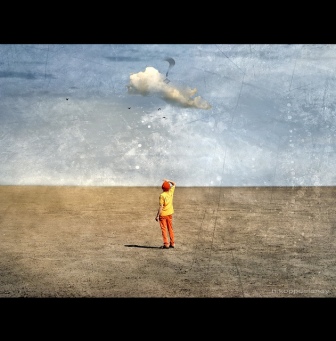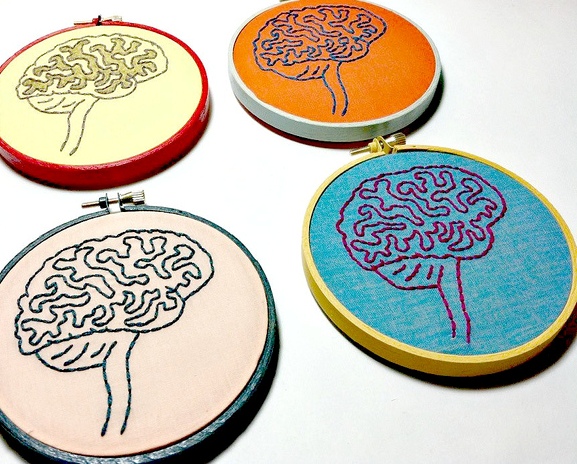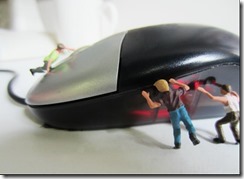Potential outcomes of brain injury including behaviour, cognitive, social, emotional.

Soldiers Marching Wikipedia
Today you are reading the remnants of what was to be a grand and enlightening piece about soldiers with brain injury. You might ask - Well what happened? [unordered_list style="green-dot"] You can see the beginning last week in a "Rant for Remembrance Day". It was much, much, bigger and more complex than I thought. Brain injury - Post traumatic stress disorder - shell shock - the circumstances of war. It was more emotional and difficult than I thought. The human stories, the lack of support for veterans - anger, sorrow, guilt, disbelief, horror and more. I kept doubting I could. The more I read, the more I wondered - What did I really know about soldiers with brain injury and their lives? [/unordered_list] You might then ask - Why did I keep going? [unordered_list style="green-dot"] I was learning so much and I wondered if sharing what I found might interest other people. My belief that this story needs to continue to…
Posted 2014 11th day 11th month @11am After several weeks of trying to prepare an article for Remembrance day: “traumatic brain injury in soldiers - a brief history” The writing would not flow. Everything I read made me cranky. It seems we have not learned all we could from history, about the lifelong support that many soldiers and their families need. The 11th hour - of the 11th day - of the 11th month is a time when the end of World War I is commemorated. When the millions of lives changed by war, across the world, are remembered. Instead of my planned, commemorative, historical, piece I am now letting off steam with a personal ‘Rant for Remembrance Day’, particularly about the lack of support for Traumatic Brain Injury in soldiers. Significant advances have been made in enabling soldiers to survive brain injury, yet we still have a long way to go to ensure those soldiers are able to live a…

Brain Myth Buster. Flickr Image by Hartwig HKD
Sorting fact from fiction. Sorting brain myth from fact, can be difficult, especially when using the internet for information. Since beginning Changed Lives New Journeys I have learned much more about many aspects of the brain, and brain injury. Researching brain myths in these past weeks I realised one of my major learnings has been “Believe no-one. Check it out for yourself.” Believe it or Not: a Brain Myth vs Fact Story The following story is to illustrate the differing views that can arise when researching facts, information, treatment, and therapies. About a year ago while researching an article on the causes of brain injury I came across a TED talk by Dr Amen entitled The most important lesson from 83,000 brain scans. I watched and I was impressed. it looked amazing and I wanted to believe it possible. I looked up a bit more about Dr Amen and thought at first I would share the talk. It seemed like…

Flickr Image by Spencer Finnley
A simple definition of impulsivity after brain injury: Talking or acting without thinking. For a fun kind of explanation the cartoon above might help. A reminder of the impact of acting without thinking. For more detail and suggested strategies read on. What Is Impulsivity After Brain Injury? As the cartoon above demonstrates impulsive actions are those made without taking into account possible problems, and not thinking about possible consequences. While we can all be impulsive at times, impulsivity after brain injury is caused by damage to the brain, specifically the frontal lobe and it does not just go away. The mechanisms that control our ability to stop and consider, and to filter what we pay attention to, are damaged. It is important to remember the impulsive behaviour you see, is related to the damage to the brain [unordered_list style="green-dot"] it is not deliberate it may not be apparent to the person themselves it is unlikely to go away it can fluctuate,…

Flickr Image by Hey Paul Studios
Cultural diversity, Plant diversity,Workplace diversity, Brain injury Neurodiversity. Wait! What was that last one again did that say Neurodiversity? Yup. I have just been reading up on what it means. I found an article (see below) that challenged my thinking, and not always comfortably. Yet in a worthwhile uncomfortable way! The term Neuro-diversity appears to have developed from people concerned with the label Autism. It is not without controversy as it raises some thought-provoking ideas. Neuro-diversity is about people having a range of functions on a scale or continuum, rather than a boxed, labelled set of groups. "What is Neurodiversity" an article in Psychology Today by John Elder Robison provides a personal experience of Neurodiversity. While not focused on brain injury specifically, the issue of ‘neurodiversity’ seems relevant. I asked author Stephanie Allen Crist if I could reprint her article ‘The True Meaning of Diversity’. Stephanie has a blog called Embracing Chaos . Agree or disagree. Embrace or discard it. I hope…

Image from Pixabay
Image from Pixabay Today I am excited to introduce writer Ruth Burrill. Ruth has agreed to share her early experience of life after brain injury, rehabilitation and working with a support worker. Before I share Ruth’s story I will explain terms used for anyone outside of Victoria, Australia, who may be unfamiliar with descriptions used in the article: [unordered_list style="green-dot"] Attendant Care Worker – is a person paid to provide support most often on a 1:1 basis for another person. Transport Accident Commission (TAC) – “… a Victorian Government-owned organisation whose role is to promote road safety, improve the State's trauma system and support those who have been injured on our roads. “ Aborigine – used within this article refers to the indigenous people of Australia[/unordered_list] Ruth’s Story of Life After Brain Injury It was having an attendant carer program that enabled me to believe in myself again in the darkest stages of rehabilitation that made the difference. Attendant…
Not being able to initiate activity and a change in levels of motivation after brain injury can be a challenging and sometimes life limiting outcome to live with. During a training session for community support workers I asked the group for the number one issue they struggled with, assisting a person living with brain injury. I had jumped ahead and assumed that number one would be either finding meaningful stuff to do, or challenging behaviour. Surprisingly, the number one issue was neither. It was the ethical dilemma of getting someone to do something they did not seem to want to do. Commonly termed lack of initiation and motivation after brain injury. How do you push someone to do something if they are not really willing to do it? How do you know when it is OK to push someone and when it is not OK? I use the word “push” here because this is how it can seem to a…
Such a grand title ‘Living with brain injury in the 21st century’. Sounds like a school essay. No. This is more a “stream of consciousness” kind of article. Less of the researched ideas and information, more me writing as my thoughts unpack. It all started when I realised I was once more overwhelmed by information and technology. I was not keeping up. I was not responding to people I wanted to contact. Not reading and listening to things I wanted to. Further highlighted when I confided to a friend, and fellow blogger that I have over 800 websites saved in the “To Be Read Later” part of my life. A few helpful tips on minimalism were gratefully accepted. It got me thinking about the impact our mass-information-modern-world, has on people (me). What about the impact on someone living with a brain injury? I guess it kind of links to the discussion about gadgets and technology last week. Impact For a Person…
Is it possible to have access to every available technique, gadget, app and technology for people with brain injury? I confess before we begin that I am being an opportunist here. I do love gadgets and technology. As part of the ever- increasing "Wow that's amazing" kind of stuff that is being developed I kept reading about different ways they were being used by, and for people with brain injury. So I have gathered links and resources rolled it up into this article. I do also have a strong view that we should be using all we have available to enable people to live a full meaningful life. For me, Wolf Wolfensberger says it all: Vastly more knowledge and technology exists about how to advance people toward their potential than is known by, or utilized in, any one service; therefore, no matter how good any service or agency is, there still may exist a better way (Wolf Wolfensberger quoted in Lemay…

Image by Chris Scott
Hidden disability after brain injury. What does it really mean? Is it different from other hidden illness or disability? Is it the person, or the disability that is hidden? I have learned more than I realised from my visit to a Stroke Support Group along with the thought- provoking comments received after writing the visit up in last weeks blog. From all this new questions arose, in particular more about invisible disability, or hidden disability after brain injury. I have been using the term hidden disability after brain injury for many, many years and this week I realised it has become a kind of automatic phrase – till now anyway. So today I am sharing my exploration of the term ‘hidden disability after brain injury.’ Your thoughts, comments and questions in the Comment section below or to my EMAIL would be wonderful What is Hidden Disability After Brain Injury I sought out our past training manuals to see the…









